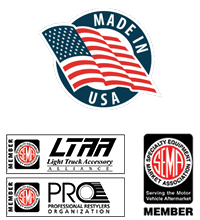Contents
Faux Leather and Contact With Water
Faux leather is a big topic among the leather devotees of the world as of late. There are many people nowadays who wax poetic about this kind of synthetic material. They frequently praise many things that involve faux leather. They often praise just how sturdy and hard wearing the materials is. They just as often praise how it can hold its own against the effects of water. There are so many materials that just don’t mesh well with H20. Fortunately for faux leather gurus, it’s not a material that’s part of that classification in any sense.
Faux leather is simple to comprehend. It’s a material that’s synthetic and that’s composed of plastic components that have undergone treatment. These plastic components have undergone treatment with things such as polyurethane, coloring and wax. What is the objective behind the treatments? It’s to replicate the appearance of genuine leather well. It’s also to replace the way that genuine leather feels. Authentic leather is nothing at all like its synthetic counterpart. That’s because it’s produced with the assistance of a number of animal hides. It’s frequently produced with the skins of sheep, oxen, buffalo and cattle.
Can Faux Leather Withstand Contact With Water?
Not all faux leathers are exactly the same. Despite that, the bulk of them are resistant to water. Leather that’s part of the full grain category, however, is a whole other story. It’s porous and can deteriorate and split after coming into contact with H20. If you make a point to dry it rapidly, though, it should be okay.
Water and Maintenance Options for Faux Leather
Water isn’t a problem for faux leather. People actually often even utilize it to clean leather that’s artificial. If you want to promote the cleanliness of faux leather, you can create a gentle soap and water combination. Some people dilute bleach and water as a means of managing more difficult stains that may be present on top of faux leather. If you want to keep your faux leather in tiptop shape, you don’t have to fret over water contact. That’s because water can often do a lot to keep faux leather in superb condition for a long while.
Waterproof Vinyl
Many people these days are keen on faux leathers that are made up of vinyl. Naugahyde is a widely known example of a “fake” material that’s designed to mimic leather accurately. It consists of a fabric that’s topped with vinyl resin or rubber. Naugahyde leather can be terrific for people who are searching everywhere for faux options that can tolerate water contact. It’s a waterproof artificial leather that can remain flawless after H20 exposure. It isn’t vulnerable to the development of problematic substances like mildew or mold, either. The presence of water can in many cases bring on mildew and mold. Since these questionable substances can lead to all sorts of health woes in humans, it’s best to stay away from them. The assistance of faux leather can help people avoid mildew and mold emergence in their homes and elsewhere.
Why Exactly Immoderate Water Contact Is a Problem for Leather That’s Authentic
You should always do anything you can to keep authentic leather away from water contact. If you’re unsure as to whether something is authentic or faux, you should play it safe. Water is a substance that has the ability to extract the natural oils that make up leather. That’s precisely why it’s so problematic for the material. If you have damp leather that starts drying out, then it’ll generally dehydrate. It’ll generally turn rather weak, too. Although it’ll take on a tough texture, it will be prone to breakage. Rain is a natural thing that has the ability to wreak serious havoc onto genuine leather for good. If you’re planning on being outside in the rain for a while, then you should go above and beyond to safeguard any and all of your leather pieces.
“Vegan” Leather
If you see the term “vegan” leather, then you can usually rest easy. That’s because this type of leather is in most situations resistant to the effects of water. Vegan leather, true to its name, never calls for ingredients that are extracted from animals in any way.
Jump to top



 View My Cart
View My Cart
